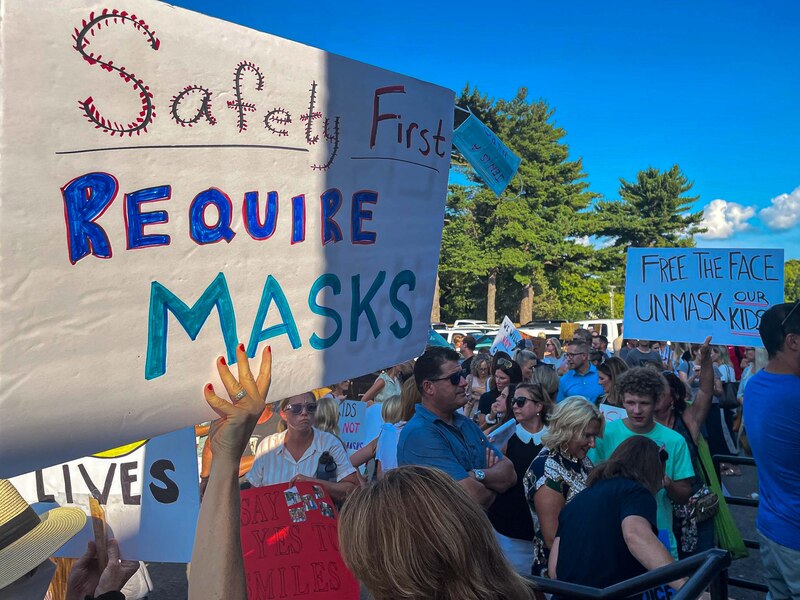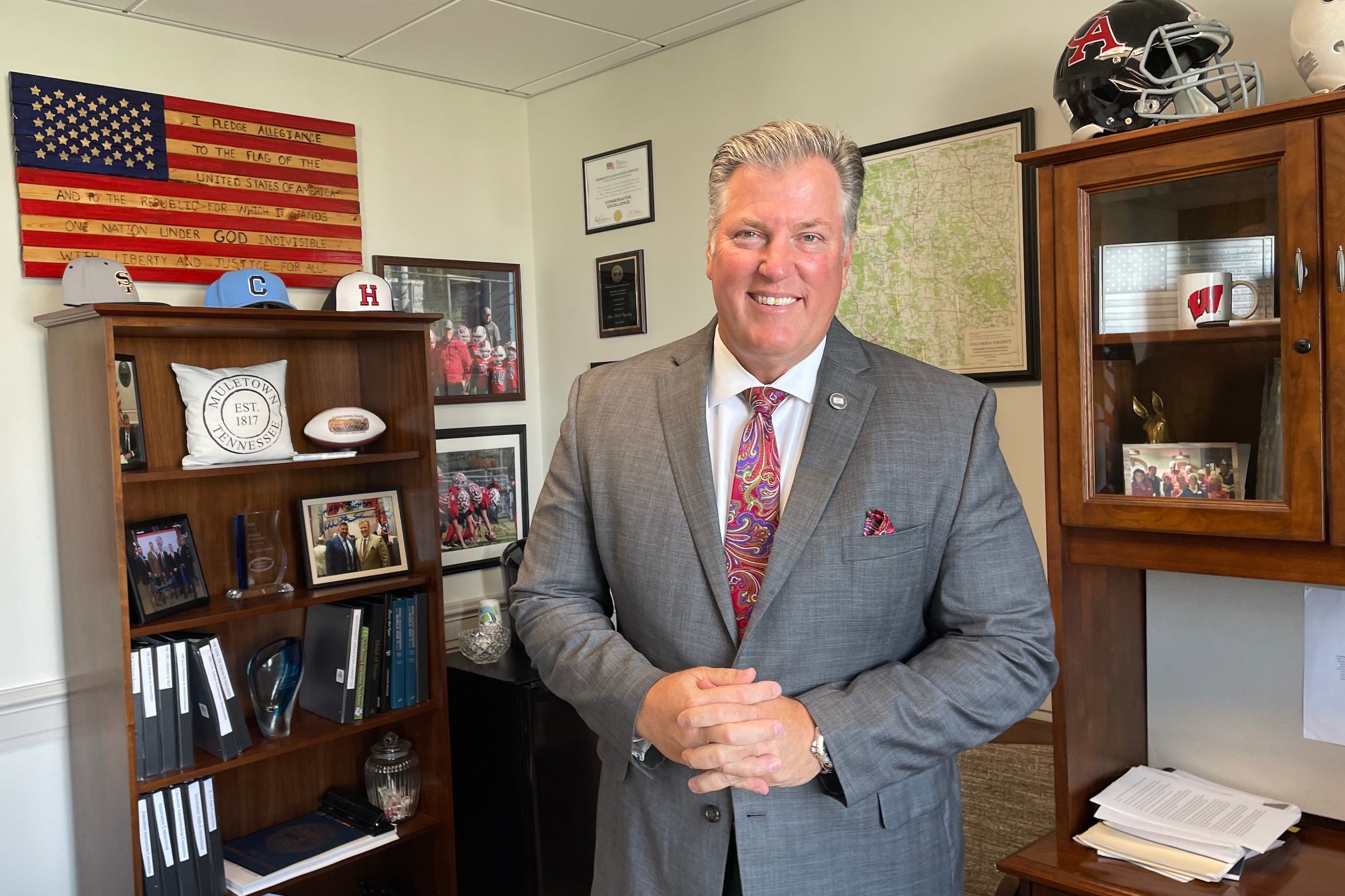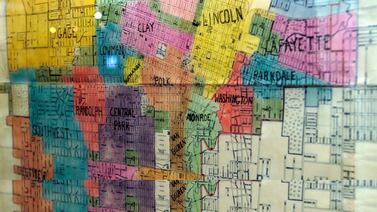With pandemic and curriculum disagreements turning school board meetings into ideological battlegrounds nationwide, one Republican lawmaker in Tennessee wants to introduce party labels to nonpartisan school board elections.
Rep. Scott Cepicky’s bill would let local Republican or Democratic parties put forth candidates for school board races beginning next year.
“If the local parties don’t want to do it, they don’t have to. It’s totally permissive and wouldn’t be mandated across the state,” said Cepicky, who serves on House education committees and represents mostly rural Maury County.
Even so, the proposal is raising eyebrows across the state as conservative groups like Moms for Liberty hold boot camps for prospective school board candidates in places like Williamson County near Nashville. A separate bill fill filed late Tuesday by House Speaker Cameron Sexton would require partisan school board races. And similar legislation is being considered by Florida’s GOP-controlled legislature.
If successful, either of the Tennessee bills could shift how races are held in one of the state’s remaining bastions of nonpartisan local elections. Parties already have the ability to interject partisan cues in races for county mayors, commissioners, trustees, and sheriffs.
“I think this would just muddy the waters and scare off a lot of people who run for school board because they want to help kids, not because of politics,” said Gini Pupo-Walker, a school board member in Nashville.
“It would also really change the way you run for office. Instead of knocking on doors in neighborhoods and going to spaghetti suppers, you’d have to attend party events and focus on building your campaign war chest,” she added.
Tennessee organizations representing school boards and district superintendents also oppose partisan races.
“The less politics in schools, the better,” said Dale Lynch, who leads the superintendents group.
Ben Torres, assistant executive director of the Tennessee School Boards Association, said nonpartisan elections “ensure educational policy is made by those whose undivided attention and interests are devoted to education.”
The bills are among dozens filed as the legislature prepares to convene Wednesday for a special session. While Republican Gov. Bill Lee declined to get involved, GOP lawmakers called the session to dial back COVID mask and vaccine mandates. The scope of their call is broad enough, however, to take up non-pandemic legislation such as the school board bills.
Cepicky argues partisan elections give voters more information to select candidates that reflect their ideals for one of the most important policy jobs in their communities.
“If I go into a voter booth without having a background on how a candidate would craft policies based off of their political ideology, that’s a big crutch to me as a voter,” he said. “How do I figure out who aligns with my views and ideologies?”
He also believes that partisan elections would lead to more accountability for school board members, who must make decisions on everything from budgets and curriculum to charter schools and the role of teacher unions.
“I think a lot of the consternation we’re seeing now with parents in school board meetings is that board members are voting the opposite of the beliefs of the people they represent,” said Cepicky, whose co-sponsor is Sen. Joey Hensley, a Republican from Hohenwald.
Others worry a partisan ballot would fuel political rancor and elevate power structures that distract from what’s in the best interest of kids.
“When I look at our students, I’m not looking through a political lens. I’m focused on their wellbeing and academic future,” said Michelle McKissack, who chairs the board for Tennessee’s largest district in Memphis.
“I hope that in all we do, we keep the focus on what’s best for children. That’s a common ground we can all stand on,” McKissack added.
It’s unclear where partisan options might take hold in Tennessee if Cepicky’s permissive bill became law.
“Our school board is already very representative of our communities,” said Miska Clay Bibbs, who also serves on the board for Shelby County Schools. “I don’t think anything that makes education partisan would be in the best interest of kids. It’s just not a party issue.”
Cepicky disagrees.
“If you’ve been alive the last four or five years in education, it’s all politics,” said Cepicky, rattling off a list of education controversies from social-emotional learning programs to sexual education to how students are taught about racism and religion.

Across the nation, school board meetings have become the scene of threats, harassment, and vitriol from some parents toward largely unpaid voluntary board members trying to craft policies to keep students safe and learning during the coronavirus pandemic. In Tennessee, board members also continue to navigate longer-running complaints from some community members who believe teachers are trying to indoctrinate kids and undermine parents.
Cepicky believes partisan races would quell political hostilities rather than inflame them.
“I think a great awakening has happened with COVID. I think what we’re seeing is a backlash from parents actually hearing what’s being taught to their children through virtual learning. They want to hold their school board members accountable,” he said.
According to estimates, between two-thirds and three-fourths of all U.S. localities have nonpartisan school board elections. But in recent years, legislatures in mostly Southern and Midwestern states have considered legislation that would open the door to partisan races.
In Tennessee, bills aimed at partisan ballots were filed in 2013 and 2017 but never cleared legislative committees.
Editor’s note: This story has been updated to note that House Speaker Cameron Sexton has filed a separate bill that would require partisan school board elections.








